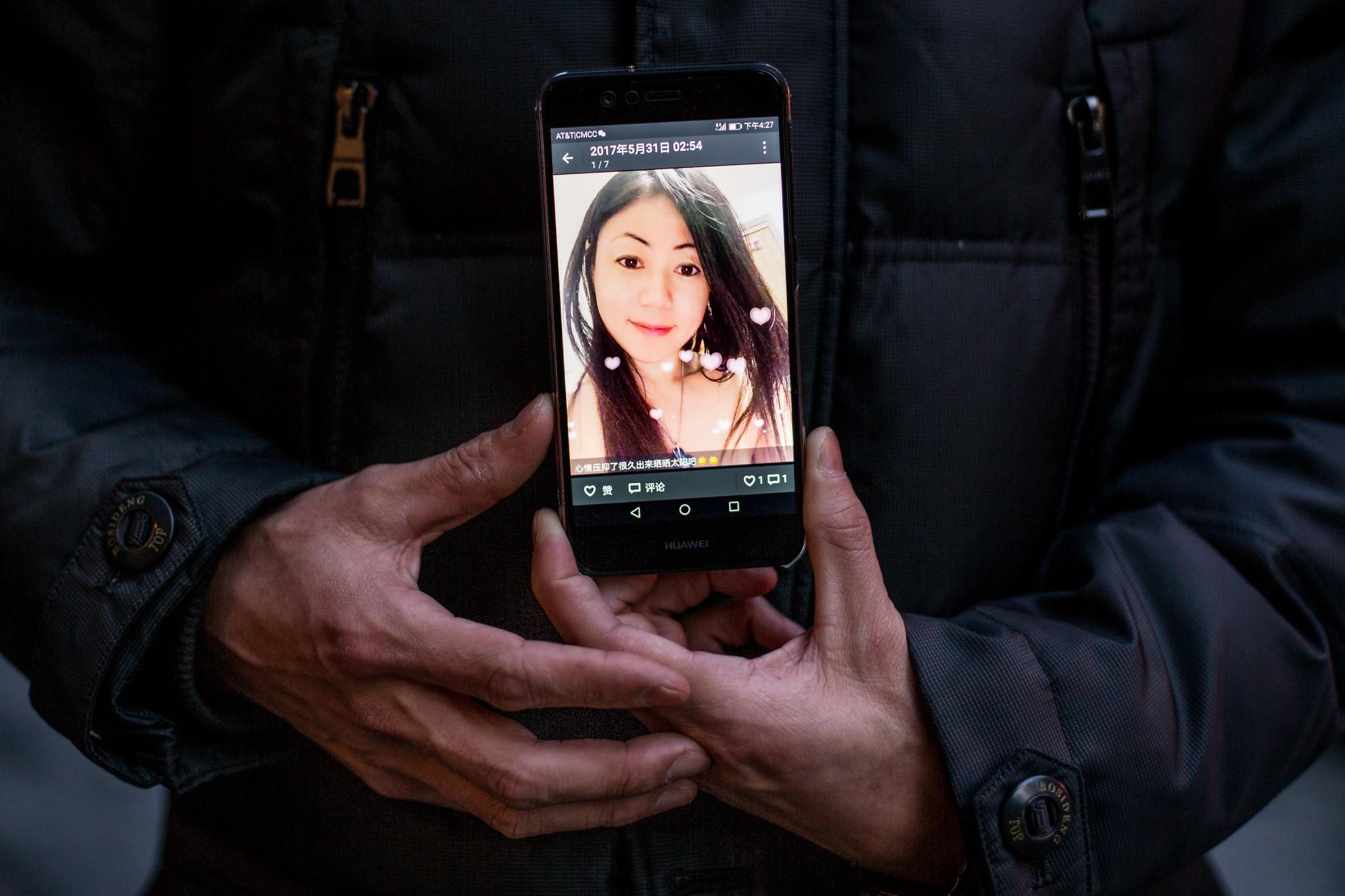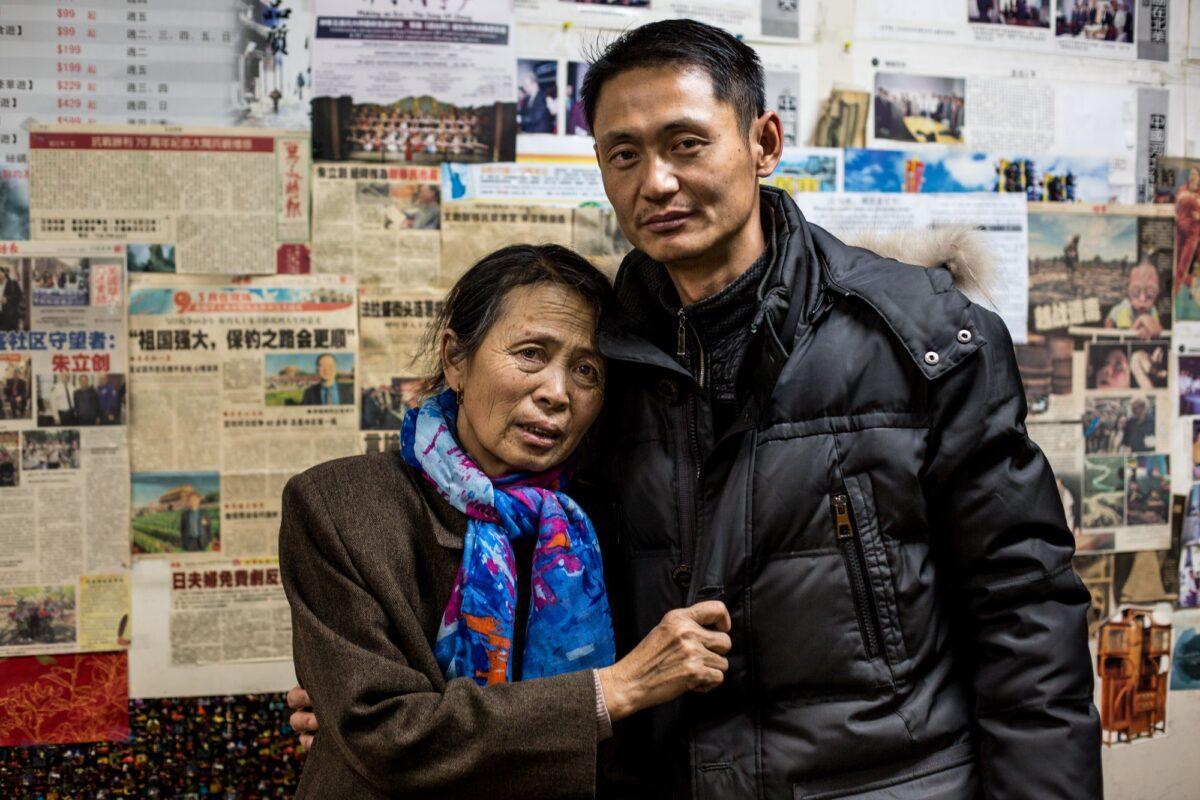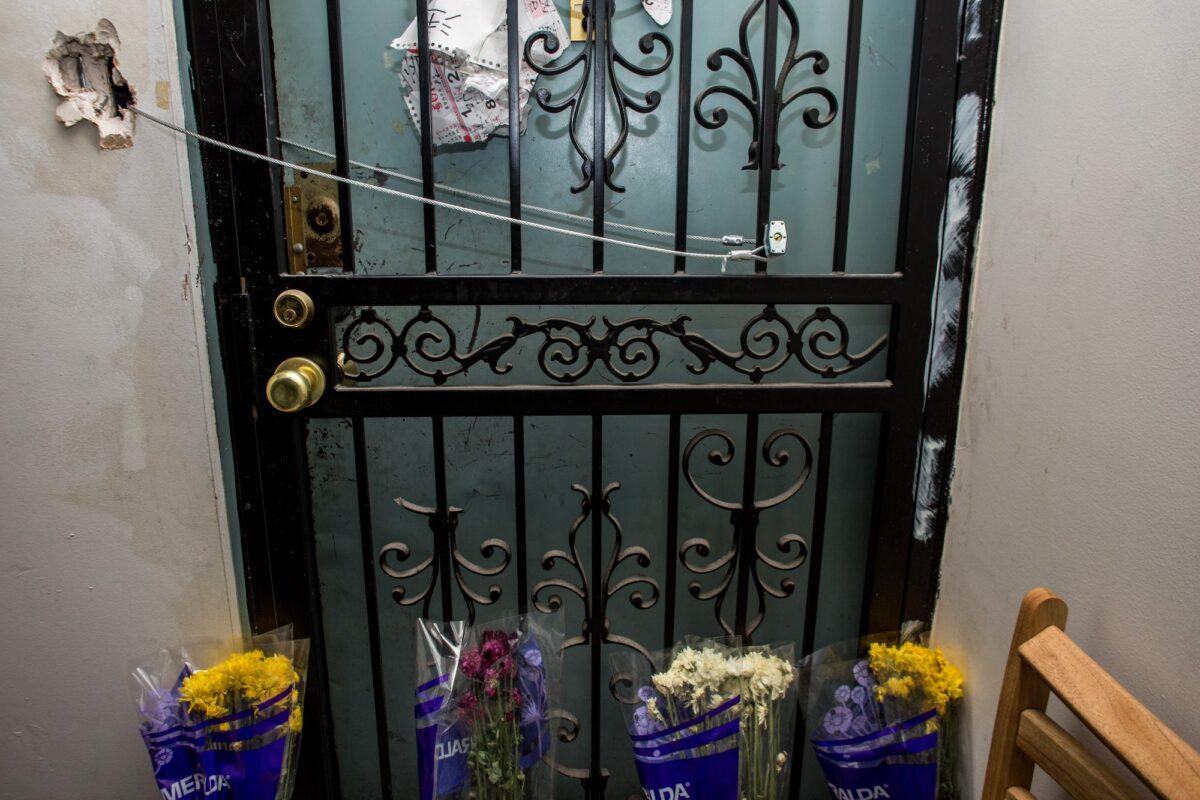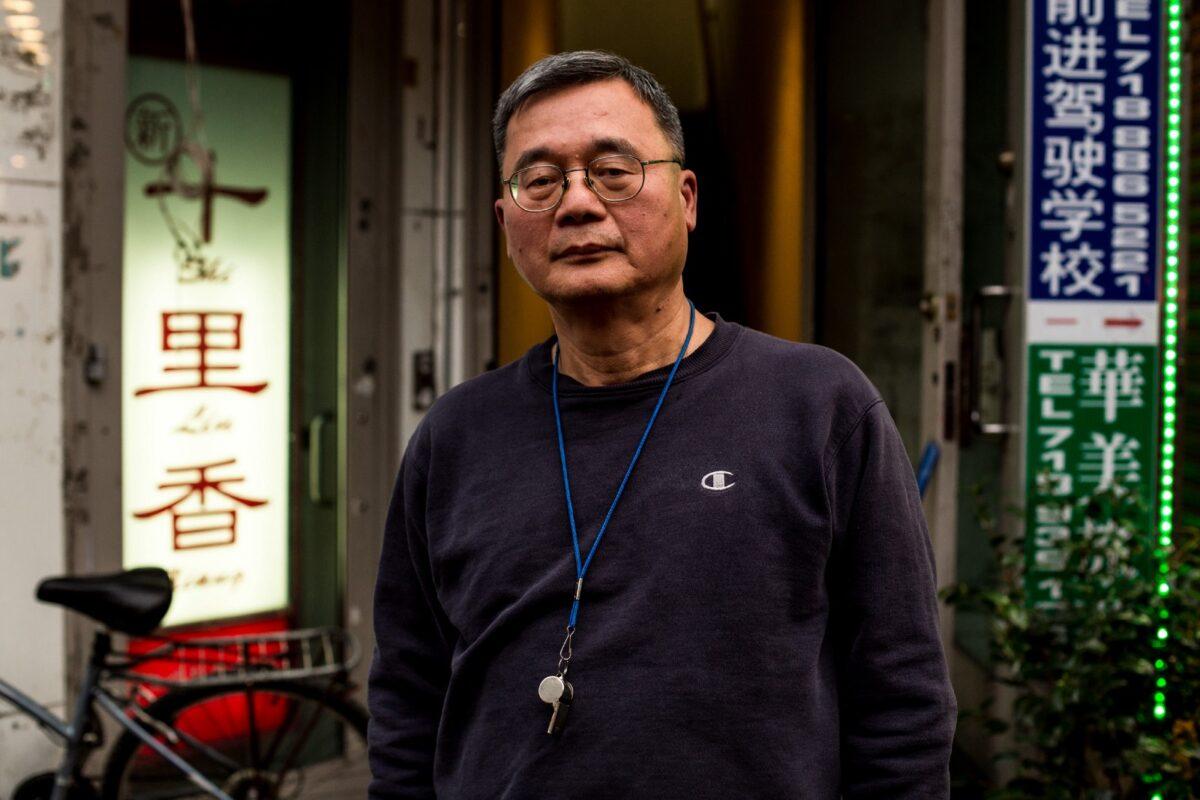Family, Former Attorney of Queens Woman Who Fell to Her Death in Vice Sting Say She Was Sexually Assaulted, Pressured to Become an Informant
Yang Song fell four stories onto a sidewalk in Flushing, Queens on the night of November 25th. An officer with the New York City Police Department accompanied her, unconscious, to New York Presbyterian Hospital where doctors placed her on a respirator. They worked for hours: the 35 units of blood they transfused did not take, given the severity of her injuries from the thirty foot fall.

Yang Song fell four stories onto a sidewalk in Flushing, Queens on the night of November 25th. An officer with the New York City Police Department accompanied her, unconscious, to New York Presbyterian Hospital where doctors placed her on a respirator. They worked for hours: the 35 units of blood they transfused did not take, given the severity of her injuries from the thirty foot fall. NYPD later said that Yang fell from an apartment building on 40th Road while police were attempting to arrest her for allegedly engaging in sex work. These were among the sparse details they released after Yang’s death the following morning. She was 38. The NYPD’s Force Investigation Division, assigned to deaths in custody, would investigate.
Hai Song, Yang’s younger brother, who lives in Shenyang, China, missed two calls from his sister around 6:45 p.m. that night, less than an hour before the fall, according to his WeChat history. Yang had been planning to travel to China to see him on December 15th, and Hai was looking forward to introducing his sister to his four-year-old son. “It feels so painful,” Hai, 35, told The Appeal this week, in Chinese and speaking through a translator. “I missed the last chance to talk to my sister.”
When they heard about Yang’s death, Hai and his 65-year-old mother, Yumei Shi, bought plane tickets. They arrived in New York on December 5th — their first trip to the United States. A taxi dropped them on 40th Road in Flushing, where they knew Yang had worked. Both speak little English. They intend to plan a funeral, seek out a lawyer, and piece together the circumstances of Yang’s death. “Many things are unclear,” Hai said. “The police haven’t provided us a fair explanation.”
Yang’s brother and mother are haunted by details she shared with them over the phone this year. Yang described being sexually assaulted by a man who flashed a badge and gun and claimed to be an undercover cop, they say. Yang also told them that the police urged her to become a confidential informant this fall.

“I hope to know the truth,” Shi told The Appeal, also through a translator. “We want to know whether this was a retaliation from the police and they forced her to die.”
This week, outside the apartment where Yang worked, there were still four bouquets of flowers on the threshold. Yang’s confidences have left her mother and brother wary and defensive. While the police maintain that they were not in the room when Yang jumped off the building, both Hai and Shi insist that she would not kill herself. In the absence of a thorough explanation from the NYPD, they are left with the stories Yang shared with them about her life in Flushing — and of the police she said she felt harassed and intimidated by.
Michael Chu, founder of the Flushing Neighborhood Watch Team, has an office on 40th Road across the street from where Yang fell. The walls are papered over with layers of clippings from local Chinese-American newspapers. He’s worked there since 1987, offering everything from immigration and attorney referrals to marital dispute mediation. He’s also friendly with the women who work in the massage business on the block and engage in sex work — he calls them the “sisters” — and defends them against taunting teenagers.
“When they are in this type of business, then nobody care,” Chu told The Appeal. “So some police just take advantage and make situation worse and make the circumstances tough.”
Locals referred Yang’s family to Chu as soon as they arrived in New York last week, and he’s been helping them facilitate media requests ever since. On Tuesday, Chu hosted Shi and Hai over sweet coffee in styrofoam cups. He ringed chairs around a folding table stacked with front-page articles about Yang’s death from the Chinese-American press featuring her social media selfies.
Hai thumbed through his Chinese mobile phone, bringing up photos of the room where his sister worked, which he had taken just days before. Hai held up one image: on her balcony, there was still a carton of eggs and two apples in a red plastic bag, now resting in the fresh snow. “When we came here, my mother and I found many facts that are inconsistent with the media reports,” he said. “And many facts are buried under the surface.”
“My sister indeed was a kind girl. She was not like what people might think she was,” Hai added. “She even sent back milk formula from the U.S. for my son. And chocolates, presents as well. She often called my parents to talk to them even when she was busy because she knew this would make them happy.”
A hard worker, Yang “never had a vacation, even for the New Year, even the holiday time,” according to Hai. “She worked for her dream. She was not someone who likes to give up.”
Yang moved to Flushing in 2013, according to Hai, along with her 78-year-old husband Zhang Zhou. Before that, the couple ran two Vietnamese restaurants on the island of Saipan — a U.S. Commonwealth in the western Pacific Ocean, about three-and-a-half hours south of Japan by plane. “My sister worked with the staff in the dining hall and her husband worked inside the kitchen as the cook,” Hai said. Yang and Zhou married there in the early 2000s, to the frustration of Yang’s parents, who did not approve “because her husband is so much older than her,” according to Shi. The couple had economic success until the Tohoku earthquake and Tsunami in 2011. Tourism took a massive hit, and Zhou had American citizenship, so the couple moved to Flushing, where Yang acquired temporary green card status and hoped to eventually open her own spa. But work in the city was tough: she provided home health care to her ailing husband for a about year, her mother said. She also worked as a waiter, and eventually told her mother that she was working “for a foot spa.” Zhou also didn’t know about Yang engaging in sex work, according to Hai, until he “learned it from a friend.”

Vice stings targeting so-called “massage parlors” exploded in recent years, primarily in Chinese immigrant neighborhoods in Queens and Brooklyn. According to a 2017 report from the Urban Institute and the Legal Aid Society, arrests of Asian-identified people in New York City charged with both unlicensed massage and prostitution increased by 2,700 percent between 2012 and 2016. Yang herself was arrested and charged with prostitution on September 27th, two months before her death, during a vice operation in the same building. That case was open when she fell, the next court date scheduled for December 1st.
“She worked for her dream. She was not someone who likes to give up.”
At the same time, other anxieties were brewing. Yang and her mother spoke often enough that when she didn’t call for six days in September, Shi was distraught. When they did make contact, what she learned concerned her more.
Shi recalled the conversation in Chu’s office Tuesday, her brown tweed coat pulled closed over her chest. “She said, ‘Mom, I was … was… was harassed by the police,’” Shi recalled. Yang told her mother that a man claimed he was a police officer and flashed a badge at her, then made sexual demands. “I asked her whether she satisfied his demand. She said ‘I didn’t dare to not to. He pulls out a gun.’”
“She also told me [that] when he got what he wanted, the police officer said, ‘If you report this to the police, I would…’ [and] he threatened her. And, ‘If you don’t report it, I’ll protect you.’”
Yang confided in her mother about reporting the assault to the police, Shi said. Yang also described the assault to attorney Mingli Chen, her immigration lawyer and informal legal consult, and told him that she filed a complaint against the man with the NYPD. “She was asked to go to precinct to point out a person in the lineup,” Chen told The Appeal. “She told me immediately she was able to point out the guy. Seemingly she never received any follow-up.” The NYPD denied the existence of a formal complaint filed by Yang.
Before the fatal sting this November, Shi said, Yang also confided that police had asked her to become a confidential informant: to “report on other masseuses.” According to Yang, a follow-up meeting with NYPD was scheduled for early this month.
“They said: ‘We can pay you. But you have to sign a contract with us,’” Shi recalled. Shi discouraged her daughter from agreeing to be an informant. Yang was also hesitant. According to her mother, she told police, “I don’t want to do this. I don’t want to snitch.”
Chen, the immigration lawyer, told The Appeal that Yang confided in him as well about the informant request. “She told me the precinct asked her whether she wanted to be an informant,” he recalled this week. “She was [feeling] pressure [and wondered] does she have any risk? Any danger?”
The NYPD did not comment to The Appeal about whether Yang was being recruited as a confidential informant.
Setting aside the unknowns in Yang’s case, Chu of Flushing Community Neighborhood Watch acknowledges the systemic pressure Yang and other masseuses deal with on a daily basis. “There’s social, economic, police — many factor which create this kind of pressure,” he said.
Predatory encounters like the ones Yang’s family described are not uncommon. One NYPD officer, Michael Golden, was suspended after a department trial in June after being accused of groping and having sex with six women, including Chinese immigrants, during undercover prostitution stings.
Police “engage in inappropriate sexual contact with clients,” Leigh Latimer, a supervising attorney with the Legal Aid Society who represents clients charged with prostitution, told The Appeal. In any given case, though, it is hard to know whether an assailant who claims to be a police officer is actually part of NYPD. In 2016, a traffic agent posing as an NYPD officer assaulted two sex workers after flashing a badge, and was charged in 2016 with sexual abuse and criminal impersonation.
“We certainly have clients who have reported to us that someone had identified themselves as a police officer, but we don’t really know if they were police officers or they weren’t,” Latimer said. Either way, “This creates fear and mistrust.”
Informant recruitment is also common, Latimer added. “Vice teams do try to recruit women they have arrested to work as informants for them in a variety of contexts.”
Alexandra Natapoff, a professor at UC Irvine School of Law, testified before the House of Representatives in 2007 about the prevalence of confidential informants in domestic policing.
“Police rely especially heavily on confidential informants to get warrants in inner city zip codes,” Natapoff said. “As a result, many individuals are likely to be informing or trying to inform at any given time. In these communities, therefore, ‘snitching’ is a fact of life.”

Activists have planned a rally for Yang on Sunday, December 17th outside of the 109th Precinct in Flushing to coincide with the international Day to End Violence Against Sex Workers. The Queens event is organized by several groups working in New York and nationally to provide assistance and support for sex workers who are incarcerated. Yang’s mother and brother say they plan to attend as well.
Yang’s death “confirmed yet again our worst fears,” Red, an organizer with the NYC contingent of Support Ho(s)e, told In Justice Today. “These police raids are deadly…. the tactics being used by law enforcement only serve to intimidate, incarcerate, deport, criminalize sex working people and in Yang’s case kill.”
“From what we can see, this is murder,” Red added. “Whether indirectly or directly, her death is on the NYPD. We had to do something.”
Since Yang’s death, women who work in the parlors on 40th Road are less visible. “The parlors are open, but no more girls stand outside,” Chu told The Appeal. “Not like previously, soliciting on the street.” Yang’s family has spoken with a few lawyers this week, and they’re eager to pursue legal action. Chu, who is facilitating the meetings, is hopeful that Yang’s death will compel the NYPD to stop massage parlor raids altogether.
“From what we can see, this is murder…. Whether indirectly or directly, her death is on the NYPD. We had to do something.”
“In the past three, five, seven years, all over Flushing and other ethnic communities, there was a dramatic increase in [sexual] services,” he said. “And yes, it did create a degenerate environment. Like, young kids and students passing by and you see them soliciting the men in the street.”
But that’s only half of the story, he continued. “It’s a life, okay? And you cannot just — ” Chu made a sharp snapping sound with his fingers.
“No matter what kind of profession or service you provide, a life is the most important thing to respect,” Chu added. “There’s a lot we need to do to improve. We want the truth, the real truth… we all have to learn something from this.”
